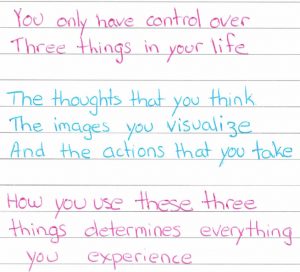Positive thinking seems to be a topic of much discussion and debate at the moment. I came across this quote the other day and it triggered my thinking
“Positive thinking will let you do everything better than negative thinking will”
– Zig Ziglar
Is this really true in ‘real life’?
I remember a few years ago someone called me an ‘optimist’ in a derogatory way. The implications of this derogatory term to some people is that an optimist is unrealistic and always looking on the bright side of life and naïve to the challenges, trauma and difficulties in life.
The research and science behind the positivity philosophy is growing and is quite compelling. Even in my own ‘non scientific’ observations, it is interesting to notice that someone that believes the challenge or problem solving activity is indeed possible seems to have more persistence and creates more creative ways to solve the challenge. If a person believes that it is not possible then the propensity to give up seems to be much greater.
 Positive thinking and optimism is now being considered in a medical and immunity system context, impacting on a bodies ability to maintain a healthy immune system and heal when required. This is unlikely to fully replace the medical interventions of modern society or even heal a persons illness completely, however it worthy of further research and integration into a person’s strategy.
Positive thinking and optimism is now being considered in a medical and immunity system context, impacting on a bodies ability to maintain a healthy immune system and heal when required. This is unlikely to fully replace the medical interventions of modern society or even heal a persons illness completely, however it worthy of further research and integration into a person’s strategy.
So how much optimistic thinking and pessimistic thinking is an ideal balance?
Is it something that is hardwired (nature) or something that can be learned (nurture), and how does someone even choose their own thinking pattern?


 Subscribe to our mailing list to unlock the download link for our free e-book The 4 Elements of Successful Organisational Change That Most Organisations Miss.
Subscribe to our mailing list to unlock the download link for our free e-book The 4 Elements of Successful Organisational Change That Most Organisations Miss.